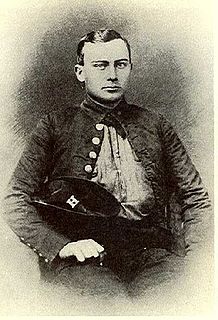A Quote by Angelina Grimke
Only let the North exert as much moral influence over the South, as the South has exerted demoralizing influence over the North, and slavery would die amid the flame of Christian remonstrance, and faithful rebuke, and holy indignation
Related Quotes
There's just no question that the United States was trying desperately to prevent the independence of South Vietnam and to prevent a political settlement inside South Vietnam. And in fact it went to war precisely to prevent that. It finally bombed the North in 1965 with the purpose of trying to get the North to use its influence to call off the insurgency in the South.
Only the whites in the South aren't hypocritical about it. You don't find any more inter - there is just as much social intermixing in the South as there - between the races as there is in the North. Only they - in the South they let you know - where they stand, and in the North they take a hypocritical approach or attitude or reaction.
In contrast, Western historians, and those in South Korea, say the North attacked the South on June 25, 1950. Both sides agree that after the war began, the North Korean Army captured Seoul in three days and pushed as far south as Pusan before American troops arrived to drive back the North Koreans nearly as far north as the border to China.
We have heard all of our lives how, after the Civil War was over, the South went back to straighten itself out and make a living again. It was for many years a voiceless part of the government. The balance of power moved away from it--to the north and the east. The problems of the north and the east became the big problem of the country and nobody paid much attention to the economic unbalance the South had left as its only choice.
Southern Kordofan is not a disputed territory. It is, and will remain, in the north, where the Nuba Mountains are. People believe there was a genocide there in 1990s. The Nuba, who are northerners, fought with the south in the north-south war. But they have their own individual interests, and they will remain in the north after the south splits.
It was necessary to put the South at a moral disadvantage by transforming the contest from a war waged against states fighting for their indepdence into a war waged against states fighting for the maintenance and extension of slavery...and the world, it might be hoped, would see it as a moral war, not a political; and the sympathy of nations would begin to run for the North, not for the South.
I can't say with certainty that slavery would have ended more quickly and more completely if the South had been allowed to leave and escaped former slaves had been allowed to remain free, and the North and the rest of the world had been a positive influence on the South. However, it's certainly a possibility that it would have ended sooner if the southern slave owners had agreed to a system of compensated emancipation and freed the slaves without a war and without secession, as most nations that ended slavery did. That absolutely would have been preferable to the Civil War as it happened.
Let's say Twitter existed during the Civil War. We would have a better understanding of people in the Confederacy who were against slavery, people in the North who actually felt we should just let the South be the South. Because the way it is now, it seems like we have this portrait where everybody in Georgia hated Yankees and everybody in the North was enlightened. That wouldn't seem as clear cut as it does now.


































